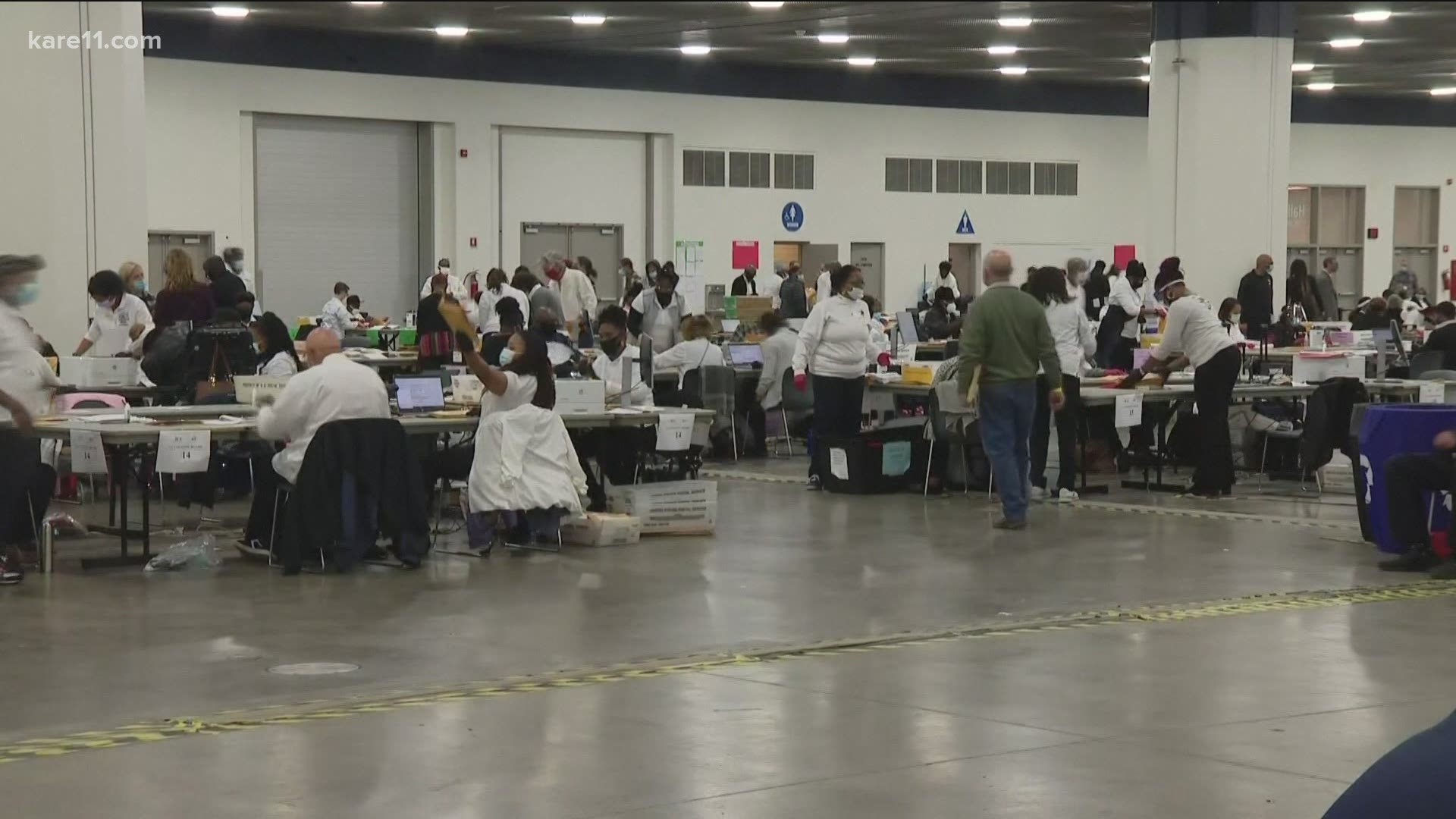MINNEAPOLIS — As Joe Biden inches closer to the 270 Electoral College votes needed to win the White House, President Donald Trump’s campaign has filed several lawsuits in states where the count is close or where he might be defeated.
Some of those lawsuits though have already been dismissed, in Michigan and Georgia.
The lawsuits were based on two claims. One, that absentee ballots are fraudulent and two, that they're in violation of what is called the Uniform Federal Election Law.
The lawsuits were dismissed because the first argument, according to professor Hamline University law professor David Schultz, is without evidence at this point.
"What the courts have said is-- no, these ballots have been legally cast, and are going to be legally counted," Schultz said. "And B, you haven't shown you've been harmed at this point in terms of widespread voter fraud."
The second argument about the timeliness of the arrival of the ballots is also not winnable, according to Schultz.
"We're not even talking about ballots that were postmarked and received after Election day," he said. "These are ballots that are already in, and what the courts are saying is no, no Mr. President, they were cast legally before Election day, and under state law, they were delivered. They're just being counted now, so they don't violate federal uniform election law."
The Trump campaign has also filed a third lawsuit in Pennsylvania. It involves complaints from the Trump campaign that its ballot counting observer could not get close enough to election workers to see the writing on the envelopes.
The campaign did win an appellate ruling to get the observers closer but that ruling doesn't impact ballot counting.
Schultz says anyone can observe. However, their role is limited to observing, not auditing.
"For anybody who has ever had somebody look over their shoulder we know how intimidating it can be," he said. "So the laws are put in place, so there isn't a partisan interference. Those laws have always been upheld, in terms of allowing observing but at a distance. So again, it's an argument, that I never expected to succeed."
The gist of all of this is that the campaign acted too early to file the lawsuits. The votes aren't counted yet.
"He hasn't been able to show a legal harm, and a foundation of American law is that you can't go into court because you're mad or upset," Schultz said. "You've got to show how you've been harmed or injured."
In Wisconsin, the president has floated the idea of asking for a recount, which he is allowed to do.
"The last time they did a statewide recount, it changed the voting by about 320 votes," Schultz said. "What usually happens at an initial vote-- our voting procedures are very accurate in this country--maybe the voting machine that's tabulating it has a hiccup. That's such a small percentage and a recount will catch that. Which means a recount is basically correcting, 0.0001 percent."

